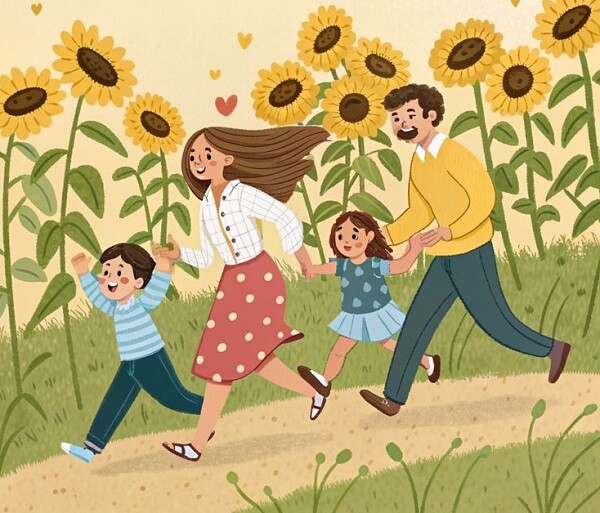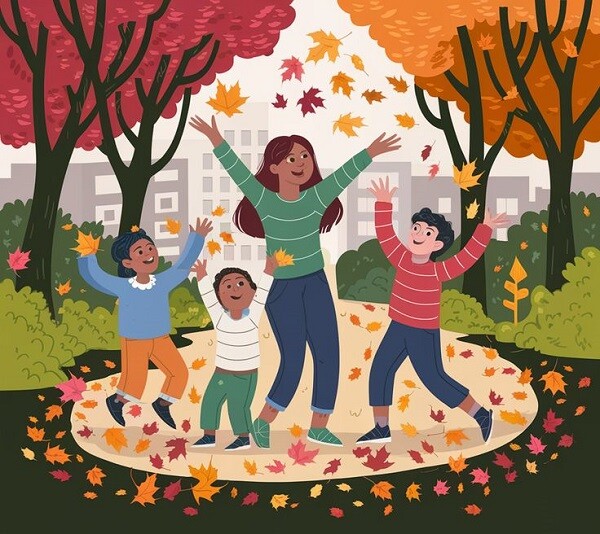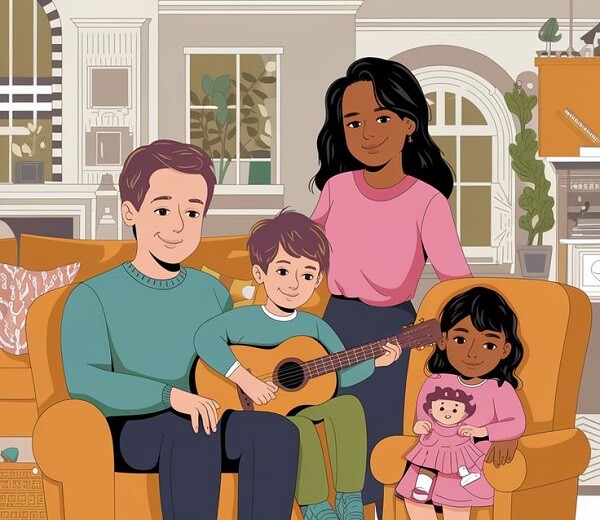Gratitude and appreciation are key traits of emotionally intelligent children, and these qualities often leave distinct “imprints” on their behavior. When children express gratitude through their actions, parents can truly feel their love and the depth of their connection.


Emotionally stable children become the family’s reliable pillar of support.
Life is full of ups and downs, but emotionally stable children serve as a steady anchor for the family. They don’t easily lose their temper over trivial matters, nor do they unload their negative emotions onto other family members. This emotional stability is a valuable trait that contributes to a harmonious and happy family environment.
Children with good emotional control tend to have better social and psychological skills. They can understand and recognize their own emotions, making it easier to communicate and connect with others. During family conflicts, they know how to remain calm and act as a bridge, helping everyone listen to and understand each other better.

Emotionally stable children provide reliable support for the family.
Additionally, these children can maintain their composure during conflicts, resolving crises calmly and providing reassurance to their parents. They act as guardians of family harmony.
They can also analyze situations objectively, without bias, and always seek solutions instead of assigning blame. When family tensions arise, they step in as peacemakers, offering constructive suggestions to help everyone overcome difficulties together.

Thoughtful and considerate children understand their parents’ needs.
These children seem to have a sixth sense for reading minds. They are adept at recognizing their parents’ needs and warming the family atmosphere with thoughtful gestures. This sensitivity reflects their keen observation skills and genuine love for their parents.
A considerate child can sense unspoken feelings. When parents are exhausted after a long day, these children know how to create a cozy atmosphere, whether it’s through a simple meal, a warm hug, or a sincere inquiry about their parents’ well-being.
These small but meaningful actions are expressions of love and signs of maturity. Remembering birthdays, making handmade gifts, or simply helping with household chores are all ways to show respect and gratitude.

Thoughtful and considerate children understand their parents’ needs.
When parents realize that their children are making an effort to show their love, they feel immense happiness and encouragement.
These children will grow up with gratitude and respect, becoming responsible, caring, and loving individuals. Moreover, these qualities help them build strong family relationships.
Through their thoughtful actions, children affirm their self-worth and contribute to a strong and happy family.

Independent children bring their parents peace of mind.
Children who are grateful and appreciative tend to develop independence at an early age, sparing their parents much effort in raising them. This independence fosters a harmonious and positive family environment, and when children can take care of themselves, it lessens the burden on their parents and demonstrates maturity and responsibility.
Independent children are often better at managing their time, tasks, and emotions. They know how to plan their activities, such as studying and helping with household chores. When children understand that their actions have an impact on those around them, they become more confident and decisive in their choices.
A child’s independence gives parents peace of mind about their development and assures them that their child can take care of themselves.
Children who understand their responsibilities within the family tend to be more disciplined and confident. They are also better equipped to help their friends and loved ones.

Independent children bring their parents peace of mind.
Seeing their children grow into independent individuals is a source of great pride for parents, and it makes them feel loved and appreciated.
The independence and responsibility that children learn from showing gratitude to their parents lay the foundation for a brighter future. These children are more likely to face challenges head-on and build fulfilling lives for themselves. They carry with them the values of gratitude and care.
Why Parents Should Want Their Child to Be Like Nobita?
“We all know Nobita from the beloved Doraemon series, but have you ever wondered why parents should aspire for their children to emulate this quirky character? With his unique blend of qualities, Nobita embodies values that can inspire a generation. In this article, we delve into the heart of Nobita’s charm and explore why he just might be the role model your kids need. Get ready to see this familiar face in a whole new light!”




































